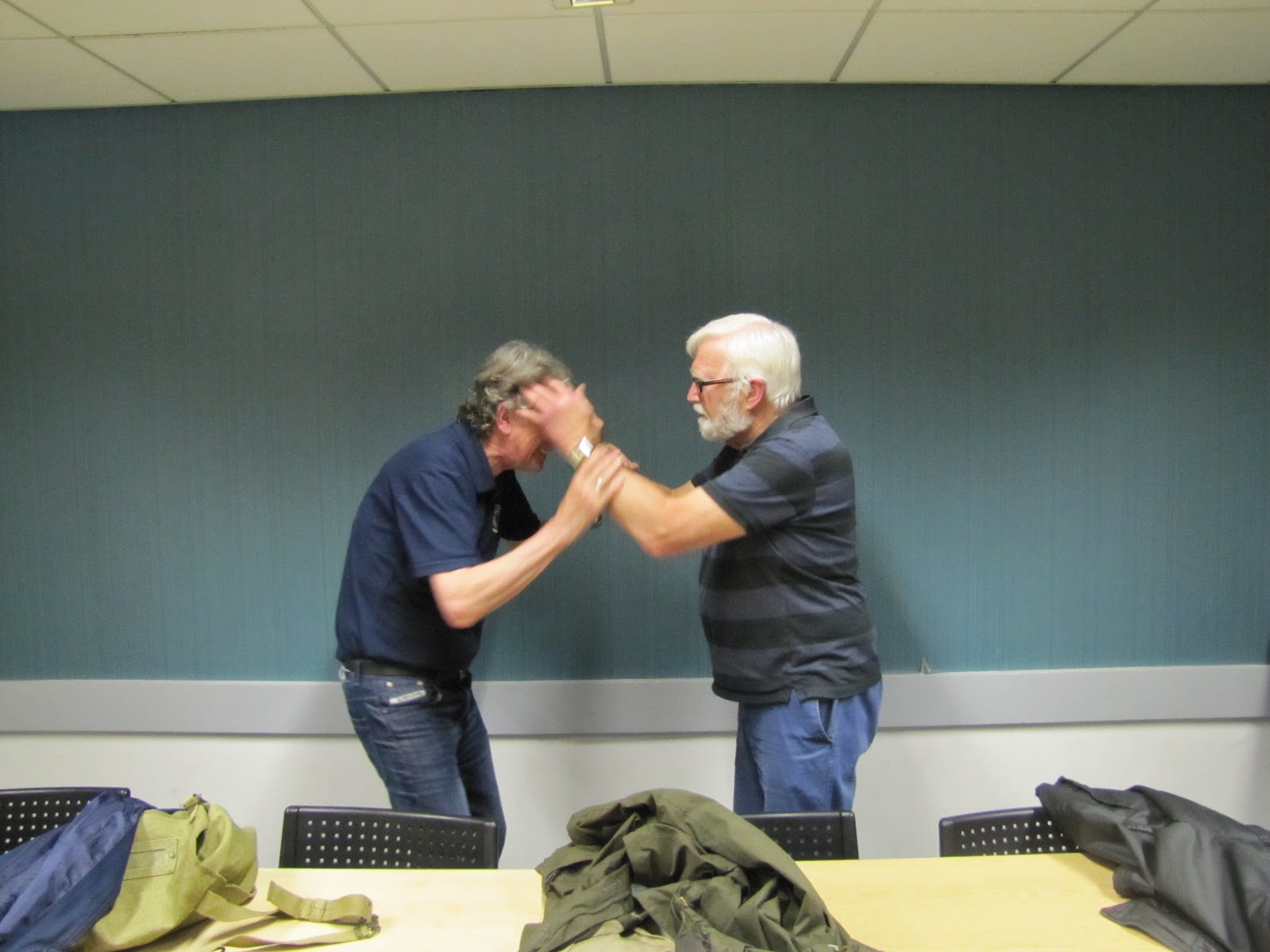This week's blog comes from Tom Straszewski, writer of 'S.O.S'.
The word rehearsal literally means “to repeat aloud”, but is
derived[1]
from the same root word as “hearse”- a funeral vehicle- and from there to “harrow”-
literally to break up the ground, but also to torment the soul. All these might
be used to describe the process of handing over a play to be rehearsed, but
thankfully it’s the first meaning of harrow that described Joe Steele’s
approach, breaking up the hardpan soil of the script and preparing it for
growth. Having spent the last month digging up an overgrown allotment, I like
this metaphor. Let’s see how far I can push it...
Although S.O.S. has
been work-shopped, drafted, redrafted,
scrapped and rewritten entirely and read aloud by a number of groups and
individuals
before coming to this point, until Saturday it was entirely in my head.
Now, I've
had my first chance to see it performed in a roughly final state- at
least as
far as the text goes. But there was
still work to be done! Once outside
my head, passages that felt right on the page were awkward in
performance. Through Joe’s direction and the actors’ performance, I was
able to see and uproot these occasional rocks that might throw the
plough, and
uproot the weeds that might later take over the plot.
That's enough farming metaphors for now.
It also allowed the actors to
query phrases and moments in the text where I had been unclear or
contradictory. I’ve had the good fortune of acting with Ian (playing the Henry
Pelham) and Richard (playing the enigmatic Spargo), and their intelligence in the
rehearsal room is one of the qualities that encouraged us to cast them. At
their prompting, some lines were changed, other paragraphs cut entirely, and some
I insisted on keeping- often because they intentionally revealed contradictions
in the characters.
Once the run-through was finished and the initial round of
cuts and notes were made, we started discussing the characters and their key
moments. If it’s harrowing to place your script in another person’s hands, it’s
also deeply rewarding when an actor pinpoints without prompting the exact
subtext you wrote. And that’s why I like writing for the stage- because at some
point you have to give up control and let nature (or rather, the rest of the creative
team) do its work.
Next week on the blog, Joe will be discussing the director’s
view on all this. As a musician and composer, he’s already been thinking about
the background sounds, in a play full of sound effects, missed messages and
storms. But he’s also looking at the script as a piece of music- lending his
skill and attention to the play’s pauses, beats and rhythm. I’m excited to see
it all come together- and you should be too.
[1] According
to that esteemed academic, Professor Internet.
Tickets for The Envelope Project are now on sale and can be purchased by calling 01904 613000 or visiting www.ridinglights.org/envelope

No comments:
Post a Comment